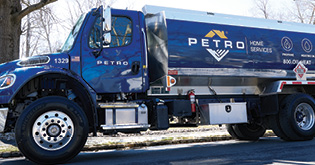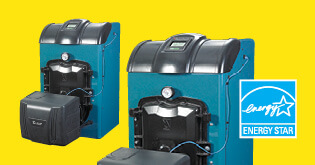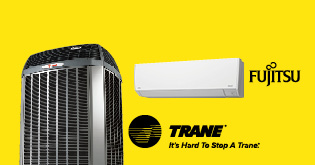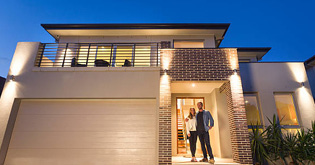- My Account:
- Sign In
- Register
- Make Payment
3 popular home air conditioning options (infographic).

In many homes, air conditioning is not just a luxury, it's a necessity. However, what is the right choice depends on various factors, including efficiency levels, aesthetics, and the ability to provide comfort. Here's a guide to help you decide which cooling option is best for you and your family.
Did you know? The average household spends as much half of its energy bill on heating and cooling. Choosing the right equipment can help you save money, provide the best level of comfort, and significantly lessen the impact on the environment.
Three popular air conditioner options.
Window air conditioners.
Designed to fit in double- and single-hung windows, window air conditioners are often installed in apartments that lack central air conditioning. They can also give a cooling boost to single rooms in larger homes.
Advantages
- Relatively small
- Easy-to-install
- Does not require professional installation
- New models are more energy efficient
- Affordable
Disadvantages
- Not meant to cool an entire home
- Blocks view of the outside
- Larger units may be difficult to install and remove for winter storage.
- Noisy
Ductless mini-split.
A ductless mini-split system is made up of an indoor wall-mounted unit (evaporator) and an outdoor unit (condensing unit). It is designed for cooling older homes without ductwork, smaller homes and add-ons where adding ductwork isn’t feasible.
Advantages
- Flexible cooling for individual rooms or zones in a home
- Does not require ductwork
- Energy efficient
- Unobtrusive
- Quiet operation
- Can provide home heating in the winter
Disadvantages
- More expensive than window units
- Needs to be installed by a professional
- Some object to having a wall-mounted unit for aesthetic reasons.
Central air conditioning system.
The central air conditioning system is the most popular option for whole-house cooling. All air conditioning components are located outside, except for the air handler, which is usually shared with the furnace.
Advantages
- Best for whole house cooling
- Energy efficient
- Virtually invisible, silent system
- Popular option for home that have a forced air heating system.
- Investment that adds value to your home
Disadvantages
- Higher upfront cost
- Requires annual maintenance for top performance
- Needs to be installed by a professional
What about portable air conditioners?
Portable air conditioners may seem like a convenient cooling option. However, portable air conditioners tend to only deliver half the cooling capacity they claim (according to Consumer Reports), which can leave you feeling hot and sweaty even when the unit is working nonstop. There are placement restrictions as the unit needs to be near an electrical source for power and a window for drainage. Noise is another factor, and most portable air conditioners have water reservoirs you must drain manually as the unit removes excess humidity from the air.
Things to consider before buying.
- How many rooms do you wish to cool? Whole house, multiple rooms, or a single room?
- Can you install duct-work or outside compressor units?
- How important is efficiency? The higher the efficiency rating of your system, the less energy it will consume.
Size impacts energy use and comfort.
An undersized unit or system does not have the adequate power required to cool your home--especially during the hottest days. It will need to run constantly, driving up your energy bill as a result.
An oversized unit or system will cools your home's interior quickly, but not the structure, so kicks back on after only a short time. It also doesn’t run long enough to remove enough humidity.
Is energy efficiency worth the cost?
Switching to a higher efficiency units is an investment that pays off over time. If your current air conditioning model is 10 years old, you can save 20%-40% of your cooling energy costs by replacing it with a high-efficiency air conditioner.
Tip: You can save money on your summer AC bill by cleaning and replacing your air filters on a regular basis and by using a programmable thermostat.
Choosing a contractor.
Here are some things to look for when choosing a home air conditioning contractor:
- Can assess the right size and type of equipment for your needs
- Offers the latest, energy efficient AC equipment
- Is experienced, licensed and insured
- Provides special offers






